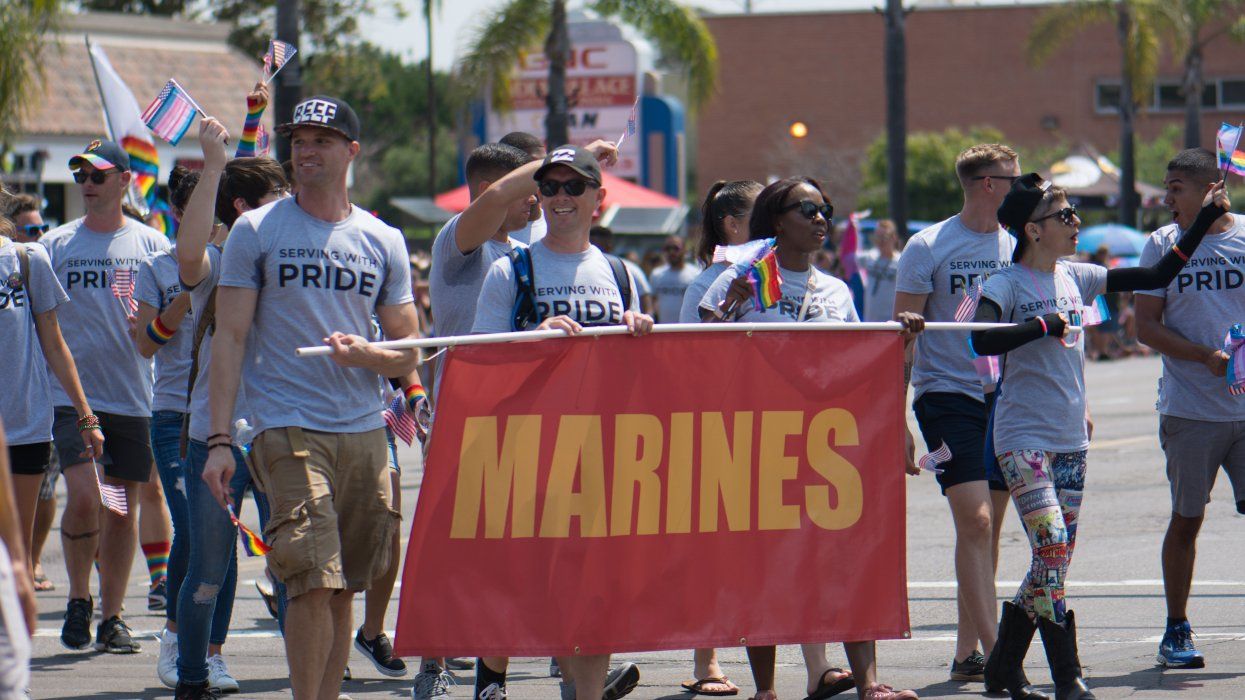Jeffrey Roth is a lieutenant colonel in the U.S. Army National Guard. The views expressed are his own.
I was driving alone in December 2010 on my way to visit family when the news carried the U.S. Senate’s vote on the repeal of "don’t ask, don't tell," the long-term policy that banned out LGBTQ+ individuals from the military. The previous several years had been difficult, with presidential elections and heated debates raising the visibility of the issue. Supporters of DADT argued with those who wanted a more inclusive military about the potential effects of repeal on unit readiness, discipline, and cohesion. Some critics even went so far as to predict deadly consequences for military personnel.
As a gay service member, I struggled to understand why there was such vitriol surrounding people like me serving. Growing up, the military had been a significant part of my life. Both my grandfathers and my father had served, and my older brother’s tragic death at the U.S. Army Airborne School in 1995 shaped my life. Yet, my desire to be with someone of the same gender was deemed so terrible that it warranted a prohibition from contributing to my country while in uniform.
Because DADT forced my silence, I was unable to share the personal impact of the policy on me. Instead, I heard others discussing how allowing people like me to serve openly would invite the seventh plague of the apocalypse.
When the final vote was cast, 65–31 in favor of repeal, I sighed with relief. The agony of silence was finally over, though considerable work lay ahead. Moreover, there was no guarantee that I would immediately — or ever — out myself to my colleagues.
The repeal process took many months. In the fall of 2011, units were briefed by leadership on how the inclusion of LGBTQ+ service members would be implemented. At that point, I had not shared my sexual orientation with any of my colleagues. During our unit’s gathering in the auditorium to receive the implementation brief, a colleague whispered in my ear, “There goes the moral fabric of our country.” A moment later, another shrugged his shoulders and said, “I don’t get what the big deal is.”
When I eventually chose to come out to a few colleagues, the reactions were supportive, which meant a great deal to me. Considering the prevailing climate at the time, I expected most people in uniform to view gay people as harmful. One day, I was having lunch with a very dear colleague. It was incredibly difficult to tell him. There is no script for such things, and I feared his potential reaction. He hugged me. “Thank you for telling me,” he said. “This changes nothing.”
Ripples of discrimination, particularly jokes, remained. One instance that deeply affected me was when two colleagues I greatly admired discussed how the worst thing they could imagine was their sons dating men. Their disgust was evident.
Since then, I have witnessed the military move from silencing LGBTQ+ people to celebrating us. Much to my surprise, in June 2020, I took part in a Pride lunch at a military dining facility overseas. Amid rainbow balloons and Pride signs, I ate my lunch, recognizing the distance we had come since I lived in fear of being discovered. I felt valued.
Today, however, I am concerned that the country is becoming less hospitable to our community. We are experiencing an alarming wave of hostility toward LGBTQ+ people, with proposed legislative measures across the country reaching record highs. In a climate where hatred of LGBTQ+ people runs rampant, intolerance gains legitimacy.
The military is not immune to the venomous nature of our public discourse. I am fortunate to serve in New York, a place that feels safe for me. I recognize, though, that not everyone is as lucky and discrimination undoubtedly persists throughout the ranks of the military. Fear of mistreatment and reprisal after coming out is very real, and the impact on our community is devastating. LGBTQ+ service members face disproportionate rates of depression, anxiety, suicidal ideation, post-traumatic stress disorder (PTSD), and sexual trauma compared to our heterosexual counterparts. Furthermore, LGBTQ+ veterans are twice as likely to experience homelessness, often resulting from stressful life events, lack of social support, and chronic discrimination.
Around 100,000 individuals have been discharged from the military solely for being gay since World War II, and these separations have occurred under less than honorable terms. This negatively affects their ability to access resources and support.
However, despite these challenges and today’s often-intolerant political climate, I am still optimistic. We are treading a meandering path toward a more inclusive country that protects and celebrates all people. At times, the journey is treacherous, but it is during such times that we must summon courage, seek strength from one another, and keep going.















